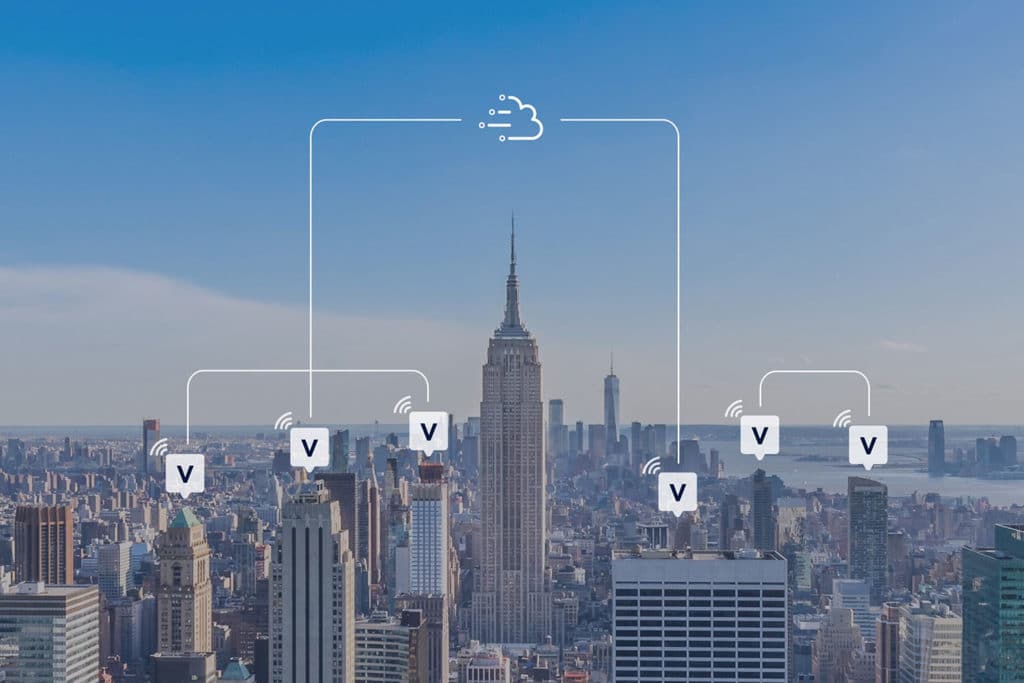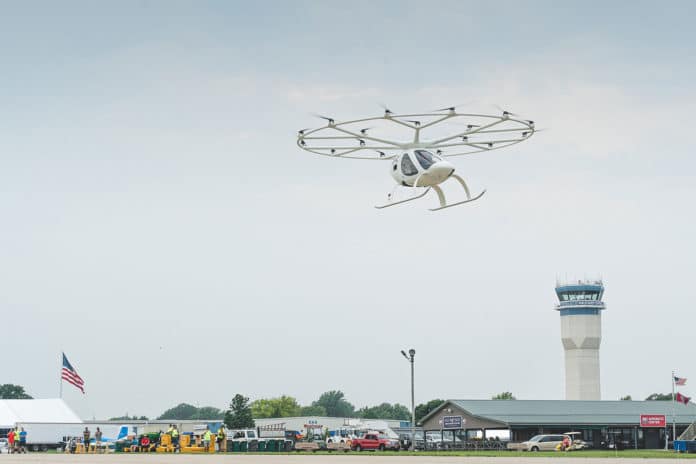While autonomous air taxis and drone deliveries may sound as if they belong to science fiction, technology seems to have brought them closer to reality. Over the coming decade or soon after, we could see these autonomous vehicles in the sky as a part of everyday mobility. Developing the best eVTOL process also includes new regulations, dedicated infrastructure, and operation systems.
German aircraft manufacturer, Volocopter, has partnered with Microsoft to develop an aerospace cloud system in Microsoft Azure that will address the data management needs of advanced air mobility operations, including the operation of eVTOL aircraft.
Once primed for commercial use, Volocopter plans to use the system to support its digital platform VoloIQ, which will manage all aspects of planned passenger and cargo operations with its VoloCity, VoloConnect, and VoloDrone eVTOL aircraft. The future Microsoft cloud will help provide flight and service support for all of these aircraft, in conjunction with the VoloPort, in real-time.

VoloIQ’s modular structure will be vast, covering aspects like booking and e-commerce, commercial scheduling, operational network planning, flight planning, flight monitoring, supplying airspace digital twins, and vehicle data logging and analysis. Volocopter has chosen Microsoft Cloud / Azure to securely interconnect all these UAM ecosystem elements into one integrated set of services.
The collaboration between Volocopter and Microsoft was first publicized in 2020 when Volocopter and Lufthansa Industry Solutions came up with the idea to develop the VoloIQ for autonomous aircraft operations based on Microsoft Azure. The VoloIQ’s aim is to provide complete digital transparency and greater ecosystem efficiency in real-time.
By utilizing this digital resource, Volocopter’s services – and all the relevant process elements needed to realize this service – will be user-friendly and digitally accessible for customers, pilots, operators, and stakeholders alike. Furthermore, the VoloIQ’s solid scope will streamline Volocopter’s transition into an autonomous air taxi services provider when the time comes and bolster its efficient maintenance and infrastructure as soon as it becomes operational.
“From the newest technologies to regulation, creating solutions to seamlessly address the cloud computing requirements for supporting continued advancements in aviation is a complex endeavor,” said Uli Homann, CVP of Cloud and AI at Microsoft. “We certainly see the potential a secure, robust, and efficient cloud platform could offer aerospace and urban air mobility operators. Working in collaboration with Volocopter, we will start to build the foundation for a commercial model for the aerospace cloud.”
